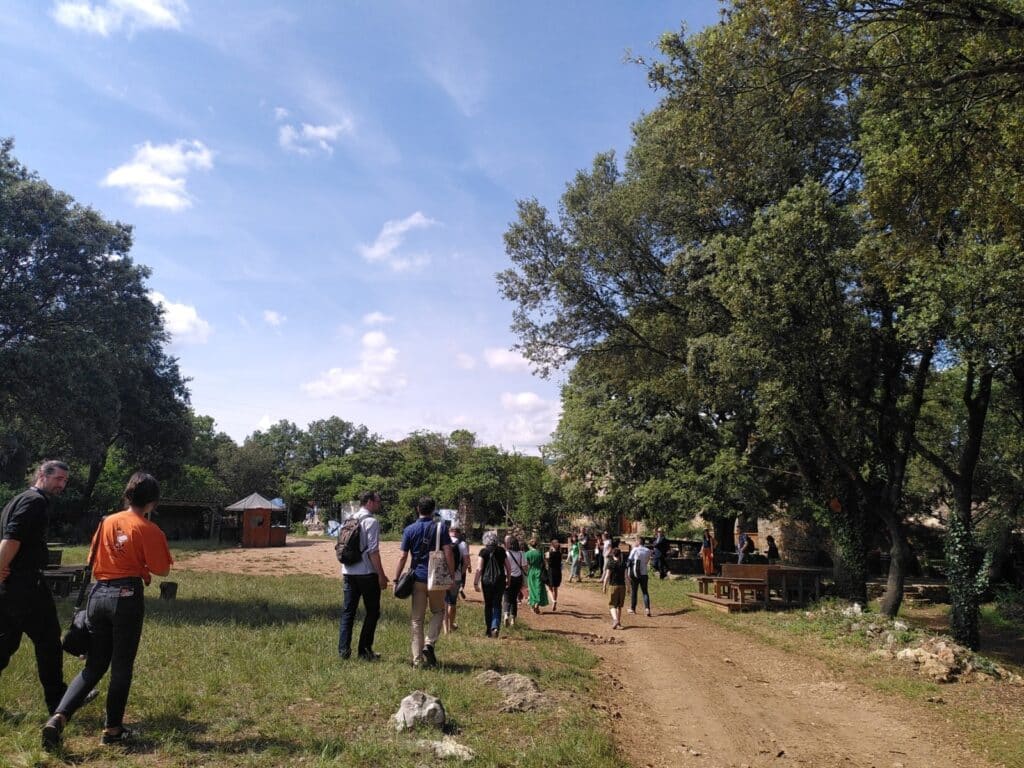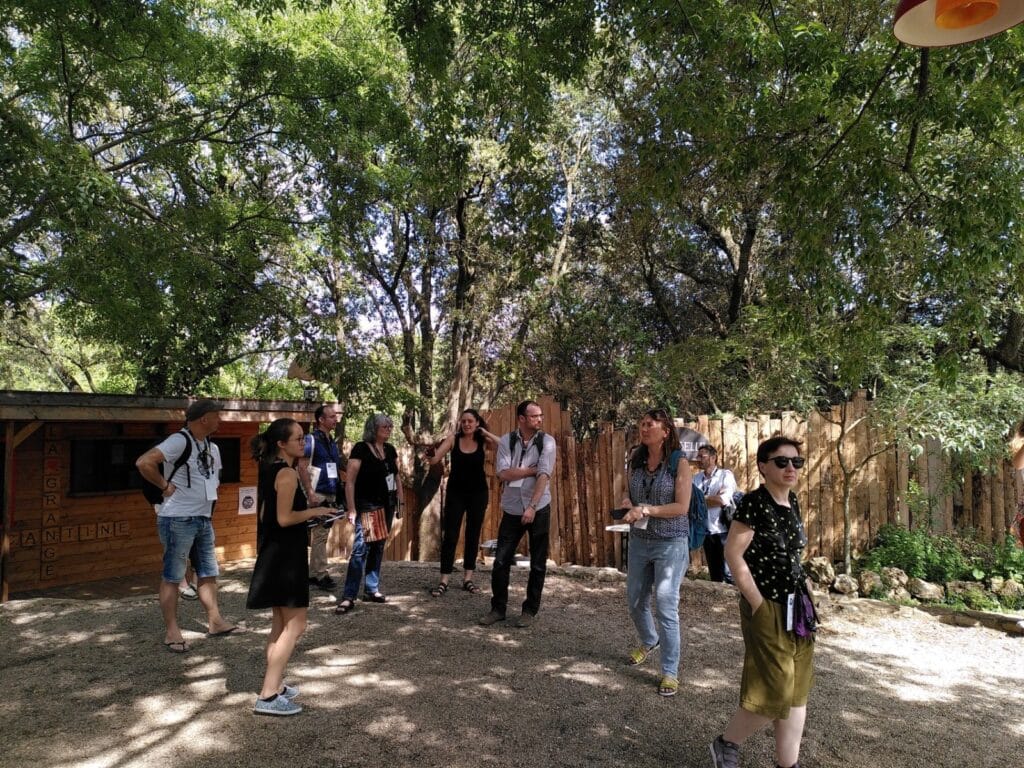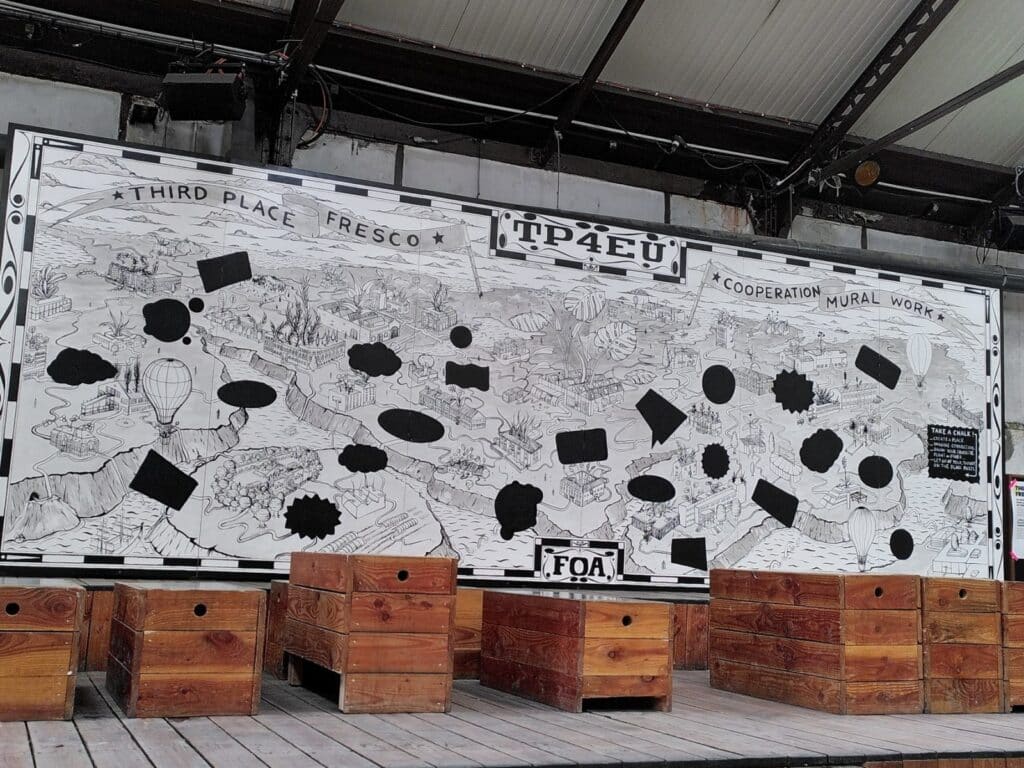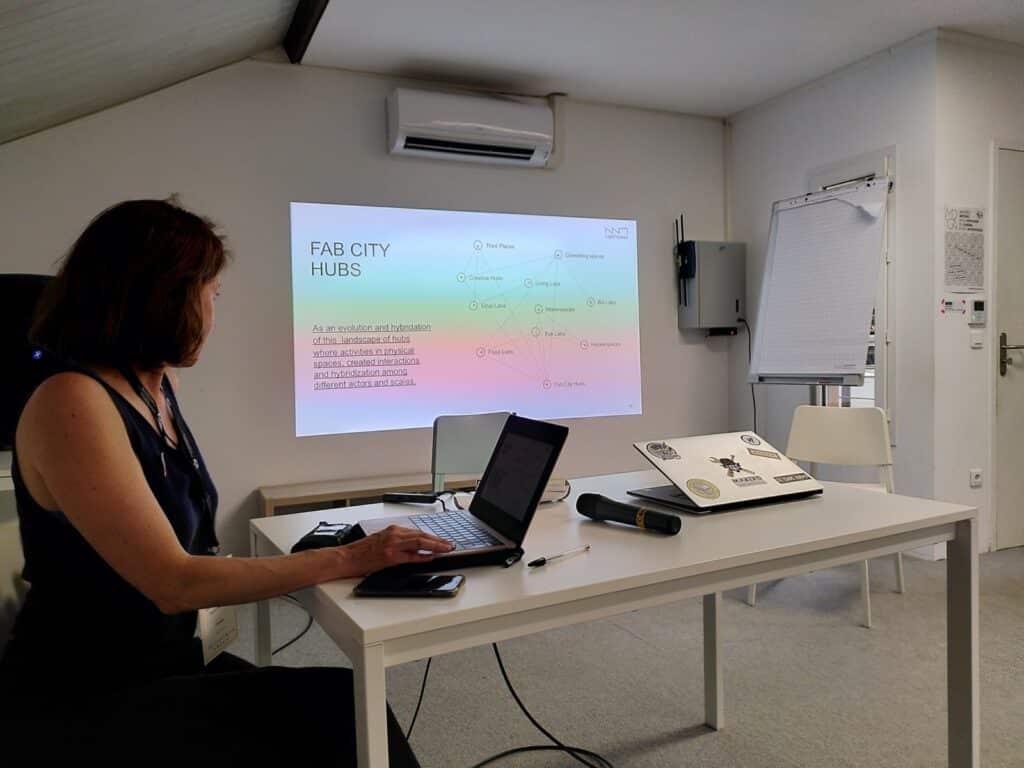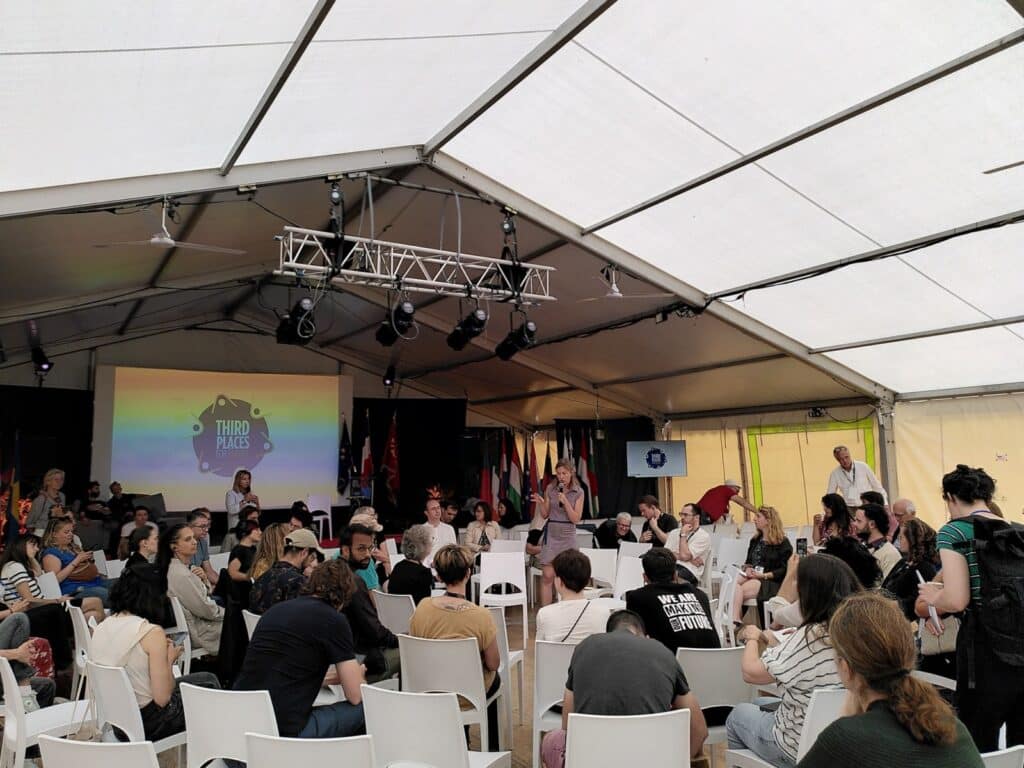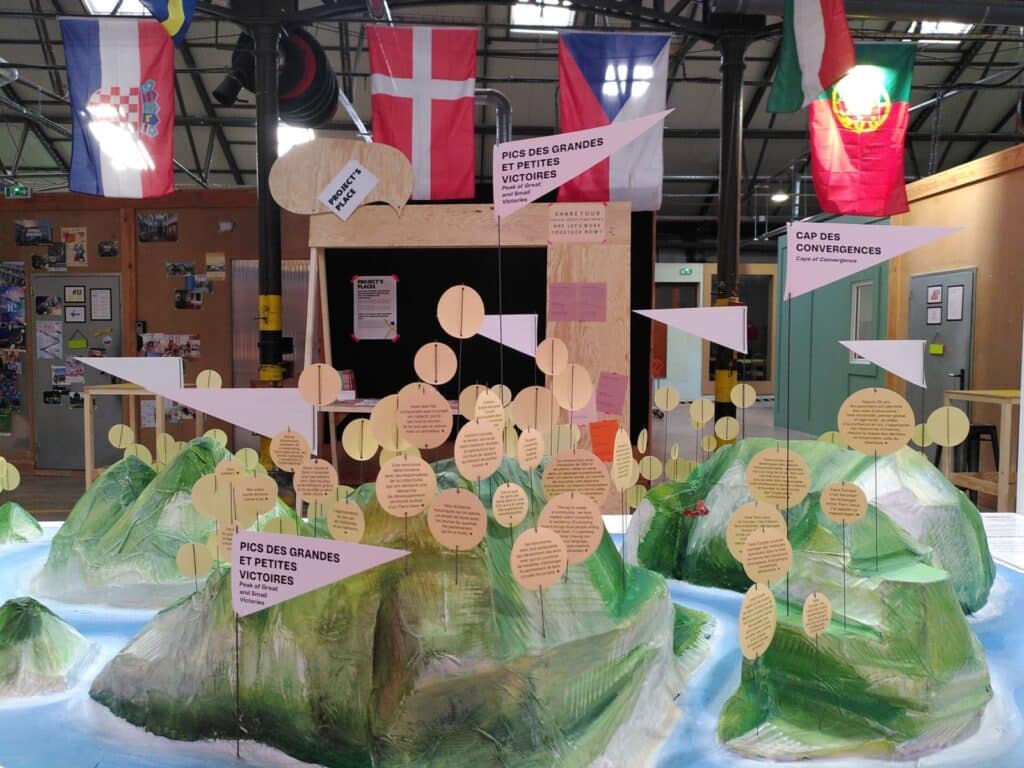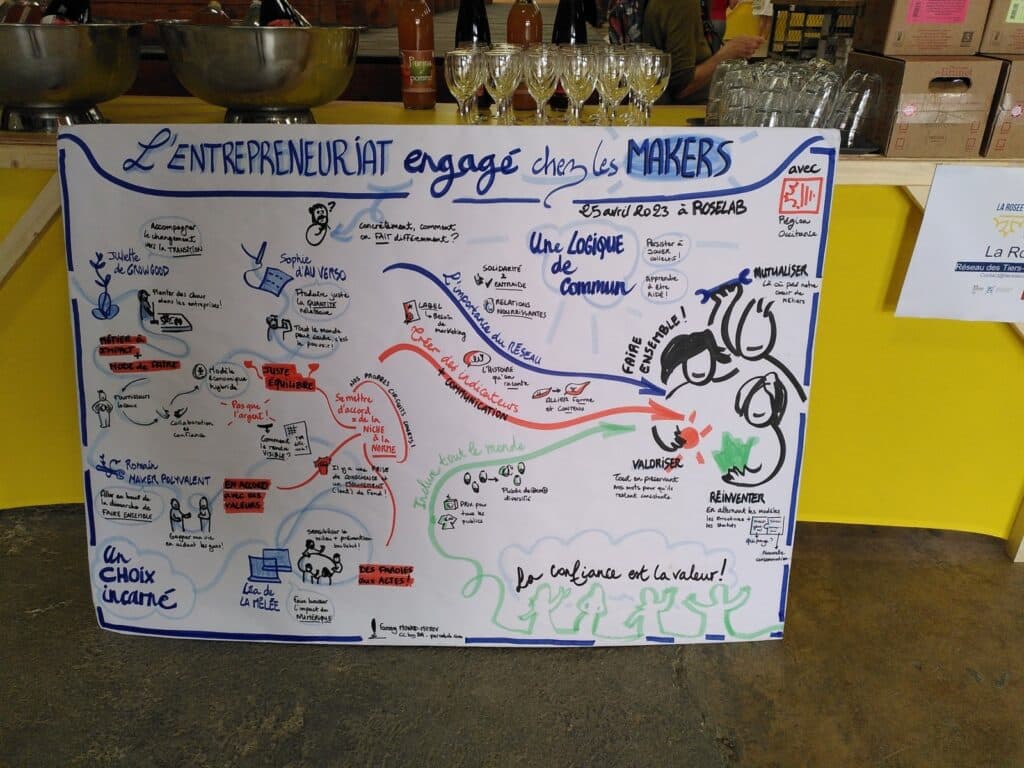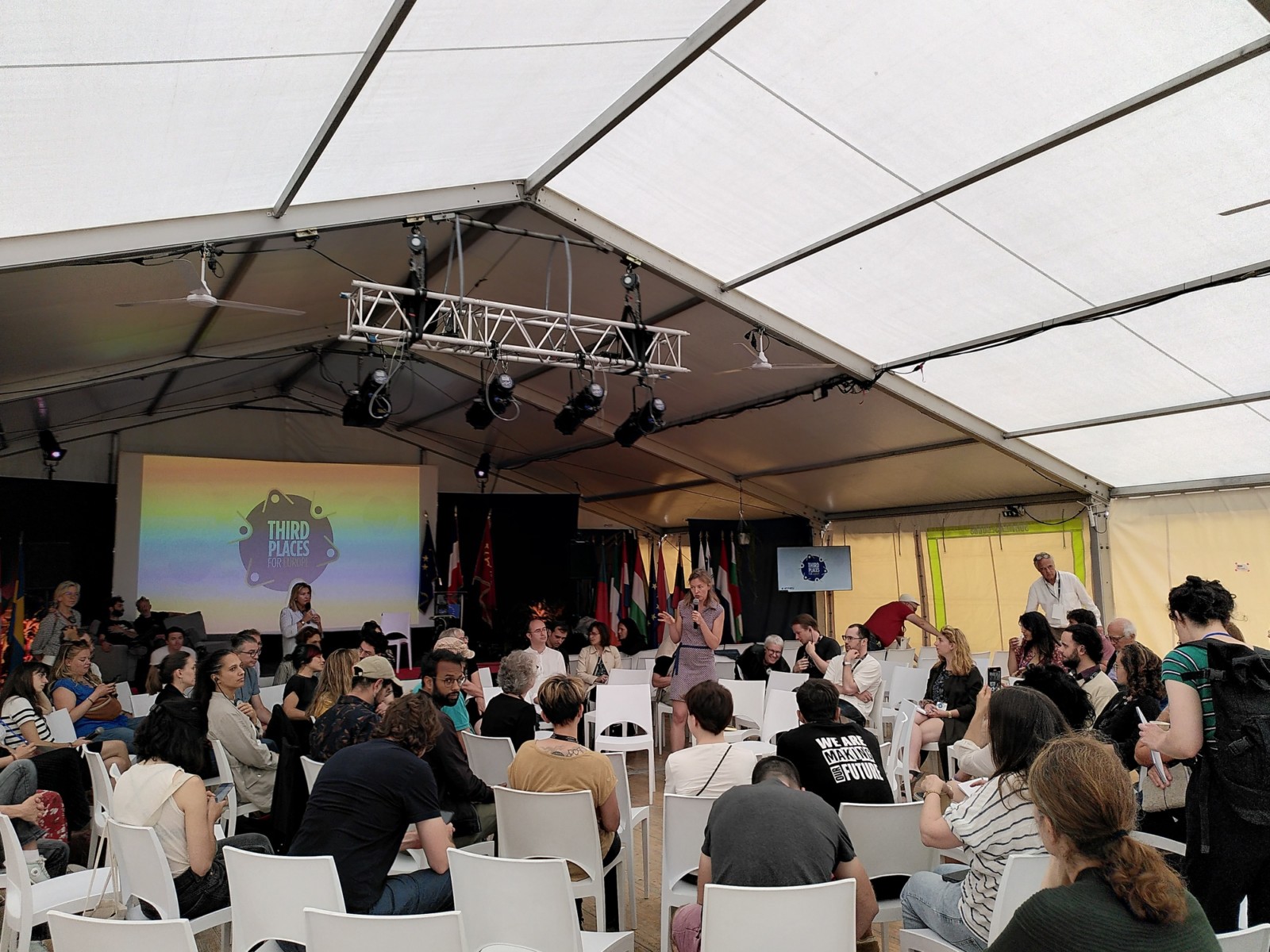
“Third places” as spaces for proximity, emancipation and creativity
Celebrating the diversity of places that act in their territory and explore new forms of citizenships, production and cultural engagements.
The first edition of “Third Places for Europe” (TP4EU) took place from the 7 to 9 of June in the Halles Tropisme in Montpellier, celebrating the diversity of places that act in their territory and explore new forms of citizenships, production and cultural engagements.
Three days of immersion in local places, discussions and convivial moments to get to know people engaged for several years on the emergence, development and consolidation of makerspaces, cultural and innovation hubs, thematic labs, grassroot initiatives at the heart of systemic transitions. It was a refreshing event to see the maturation of such projects and the positive energy to cooperate for envisioning future strategies of development for third places.
With the programme “Nouveaux lieux, nouveaux liens” (new places, new bonds) set up at national scale and the deployment of national and regional associations of third places, France demonstrated how the public engagement can accelerate the development of such places, making them breath during critical times, permitting new forms of expressions while reinforcing synergies in between actors and territories. The region Occitanie, was showcased as a dynamic territory that gave voices to third place stakeholders and developed a dense network of initiatives led by horizontal forms of governance.
An importance was given to take actions in territories from all sizes, from urban to rural areas, to also consider the topics of desertification, gentrification and democracy dilution. We had the chance to go outside the city and visit La Grange – Bouillon Cube, a place in the middle of the Pic Saint Loup natural area that proposed shared spaces for working and cooking, cultural and educational activities for small villages around. Immersing the place and discussing with project holders reminded us how much long-term impact depends on daily involvement, patience, multi-tasking and a capacity for gathering the energy of people on a shared vision and an open and inclusive program of activities.
Third places are guided by their local contexts and are constantly evolving to adjust to people and projects that passed by. In many ways they are supporting transitions, hosting initiatives, creating momentum for emergence of ideas, connecting people and giving visibility to projects.
How Fab Lab Barcelona’s research contributes to TP4EU?
It was a great moment for Fab Lab Barcelona, to discover other projects and current needs from third places, but also to share and reflect on the research that happened in the lab for several years:
- The positioning of third places as interfaces between homes, civil society and public institutions is strongly aligned with the work realized in Siscode proposing labs (fablabs, living labs and cultural centers) as a playground for co-creation.
- Project outcomes from Foodshift and Smartcitizen nurtured the debates on new forms of citizenships.
- The co-design of Poblenou Fabrica’s exhibition illustrated how to support community engagement and how to decentralize actions from one place to a wider territory.
- The topic of local production and distributed fabrication raised a lot of attention and were discussed with friendly or new faces working in fablabs, textile hubs, collaborative carpentries, precious plastic communities, confirming the needs to continue our experimentations towards locally productive cities and to consolidate spaces for exchanges and visibility for designers and makers.
A research on Fab City Hubs that gives tools and methods for third-places
When Carlotta from Volumes presented the Centrinno’s project, we could reflect on how the concepts of Fab City Hubs and third places were connected, and how the dedicated toolkit could be effectively used in other contexts. It was agreed that Fab City Hubs are third places that are in a process of contributing in a conscious or unconscious way to Fab City roadmaps. The case-studies, tools and methods present in the toolkit appear as relevant for third place practitioners who want to frame their strategy or consolidate their pathways towards circular ecosystems, with inclusive practices and valuing cultural heritage places and stories. Participants in the session highlighted the need to experiment and customize such approaches in smaller cities or regions, a future challenge for Centrinno’s partners.
Mobilizing strengths amongst existing networks and acting together at European scale
This event could draw up a rich but complex picture of the European context in which some third places are evolving. It was mentioned a diversity of ongoing and upcoming policy plans (Green Deal, New European Bauhaus), international networks (ECHN, Fab City and Fab Lab networks, Vulca, ERRIN, Trans Europe Halles) and european funding opportunities (Erasmus+, Creative Europe, Horizon Europe, Interreg and other horizontal programs).
The event ended with a fishbowl activity as a call for proposals to consolidate the future of third places in Europe. While the major challenge is for third places to access structural funds and economic models that guarantee their long term survival, many proposals were directed towards collaborative actions that could endeavor peer-learning exchanges, personalized support training or thematic research explorations. Soon, we will discover the advocacy plan with all collected proposals.
Thanks again to TP4EU organizers for succeeding in creating this space for dialogue. We are enthusiasts with the conclusive words of Sybille Merten, seeing our lab and projects “as places for proximity, emancipation and creativity at the heart of systemic transitions’ . We hope to contribute to future actions to glocally explore the routes towards more conviviality and a better appropriation of the commons by citizens inside and across territories. Count on us to fuel new practices towards distributed design and local fabrication.
Get to know more about the event: https://www.tp4eu.org/
Author: Marion Real
